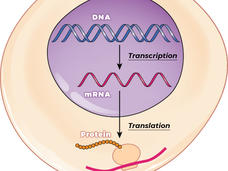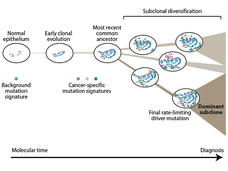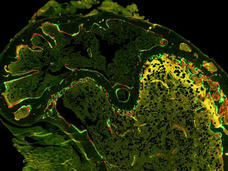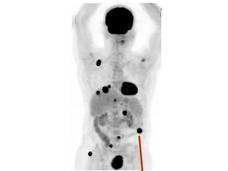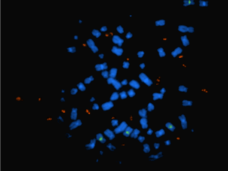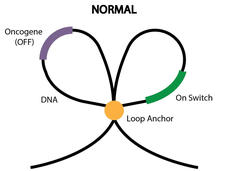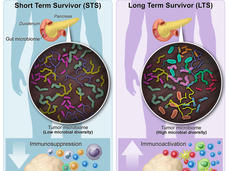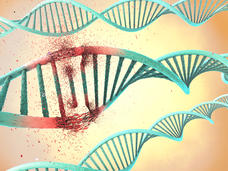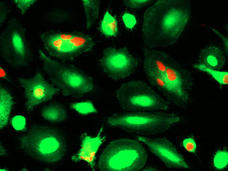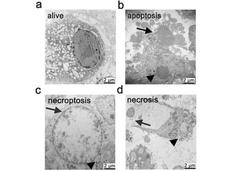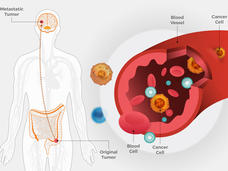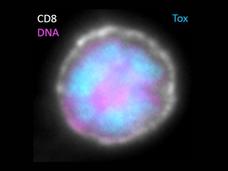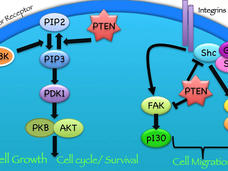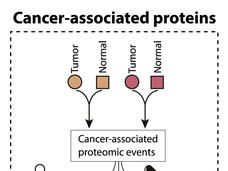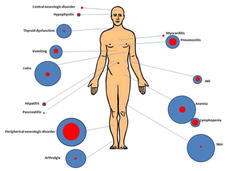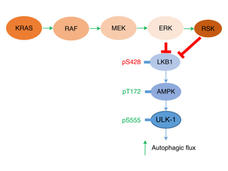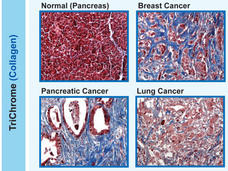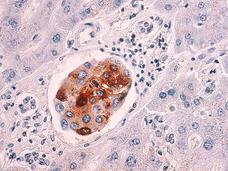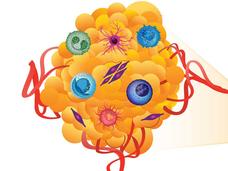Biology of Cancer - Cancer Currents Blog
Cancer biology research news, with context from experts at NCI and elsewhere. Topics include cancer metastasis, the tumor microenvironment, and new targets for cancer therapies.
-
Analyzing Tumor RNA May Help Match Patients with Most Effective Cancer Treatments
A novel approach to analyzing tumors may bring precision cancer medicine to more patients. A study showed the approach, which analyzes gene expression using tumor RNA, could accurately predict whether patients had responded to treatment with targeted therapy or immunotherapy.
-
Mapping Cancer Genomic Evolution Offers Insights into Tumor Development
Scientists have mapped the evolution of 38 cancer types, noting common gene and protein alterations that occur early, in the middle of, and late in their development. The hope is that these maps create opportunities to identify cancers much earlier.
-
Mouse Study Points to Strategy for Preserving Bone During Chemotherapy
Bone loss associated with chemotherapy appears to be induced by cells that stop dividing but do not die, a recent study in mice suggests. The researchers tested drugs that could block signals from these senescent cells and reverse bone loss in mice.
-
Off Target: Investigating the Abscopal Effect as a Treatment for Cancer
In people with cancer, the abscopal effect occurs when radiation—or another type of localized therapy—shrinks a targeted tumor but also causes untreated tumors in the body to shrink. Researchers are trying to better understand this phenomenon and take advantage of it to improve cancer therapy.
-
Changes in Metabolism Help Melanomas Spread
Melanoma cells that metastasize to other parts of the body produce high levels of a protein called MCT1, a new study in mice has found. Blocking MCT1 with an investigational drug, AZD3965, led to fewer and smaller metastatic tumors.
-
Brain Cancer Cells Hijack Gene “On Switches” to Drive Tumor Growth
Glioblastoma cells sneak many copies of a key oncogene into circular pieces of DNA. In a new NCI-funded study, scientists found that the cells also slip several different genetic “on switches” into these DNA circles, helping to fuel the cancer’s growth.
-
Epigenetic Changes Pinpointed as the Cause of Some GISTs
Scientists may have pinpointed the cause of some gastrointestinal stromal tumors (GISTs), a rare cancer, according to a new NCI-funded study. However, the culprit isn’t a harmful genetic mutation, but another type of genetic change, what are called epigenetic alterations.
-
To Treat Pancreatic Cancer, Mouse Study Suggests Altering Tumor Microbiome
In people with pancreatic cancer, the makeup of bacteria that populate their tumors could predict how long they live, results from a new study suggest. Experiments in mice suggested that altering the tumor microbiome could play a role in treatment.
-
Altering Diet Enhances Response to Cancer Treatments in Mice
A new NCI-supported study showed that altering cancer cell metabolism by feeding mice a diet very low in the nutrient methionine improved the ability of chemotherapy and radiation therapy to shrink tumors.
-
Newly Discovered ‘Don’t Eat Me’ Signal May be a Target for Cancer Immunotherapy
Researchers have identified a protein called CD24 that may be a new target for cancer immunotherapy. The protein is a ‘don’t eat me’ signal that prevents immune cells called macrophages from engulfing and eating cells.
-
Could A Form of Cell Death Enhance Cancer Immunotherapy?
Injecting cells undergoing necroptosis, a form of cell death, into tumors in mice kickstarted an immune response against the tumors, researchers have found. When combined with immunotherapy, the treatment was effective at eliminating tumors in mice.
-
Metastatic Colorectal Cancer May Spread Early in the Disease, Study Finds
Many colorectal cancers likely have spread long before the original tumor is detected, researchers have found. The findings suggest the need for very early detection and could help identify patients who need more aggressive systemic treatments.
-
Improving Cancer Immunotherapy: Overcoming the Problem of ‘Exhausted’ T Cells
Researchers have identified proteins that may play a central role in transforming T cells from powerful destroyers to depleted bystanders that can no longer harm cancer cells. The findings could lead to strategies for boosting cancer immunotherapies.
-
Researchers Turn On PTEN Tumor-Suppressor Protein in Cancer Cells
Researchers have discovered a potential way to turn on one of the most commonly silenced tumor-suppressor proteins in cancer, called PTEN. They also found a natural compound, I3C, that in lab studies could flip the on switch.
-
Studying Genes and Proteins Together Sheds New Light on Colon Cancer
Using novel proteogenomic techniques, scientists from NCI’s Clinical Proteomic Tumor Analysis Consortium have uncovered new features of colon cancer that may guide new treatment strategies.
-
New Drugs, New Side Effects: Complications of Cancer Immunotherapy
The expanding use of cancer immunotherapy has revealed a variety of side effects associated with this treatment approach. Researchers are now trying to better understand how and why these side effects occur and develop strategies for better managing them.
-
Researchers Discover Potential Way to Hit Elusive Target in Pancreatic Cancer
Three research groups have found a potential way to kill cancer cells in pancreatic tumors by simultaneously blocking the activity of proteins that interact with KRAS proteins and disrupting an energy-creating process called autophagy.
-
Bone Marrow Transplant Drug May Improve Immunotherapy for Metastatic Breast Cancer
The build-up of connective tissue around some types of cancer can act as a barrier to immunotherapy. A new study uses a bone marrow transplant drug, plerixafor, to break down this barrier and improve the efficacy of immune checkpoint inhibitors in animal models of breast cancer.
-
Dormant Tumor Cells Can Be Sensitized to Chemotherapy
A new study in mice shows that disrupting the relationship between breast cancer cells that spread to bone and normal cells surrounding them makes the cancer cells sensitive to treatment.
-
HTAN: Mapping Tumors across Space and Time Using Cutting-Edge Technologies
The Human Tumor Atlas Network, an NCI-led collaborative research project, is creating detailed maps of cancers that will be used to learn how cancer develops, spreads, and responds to treatment.
